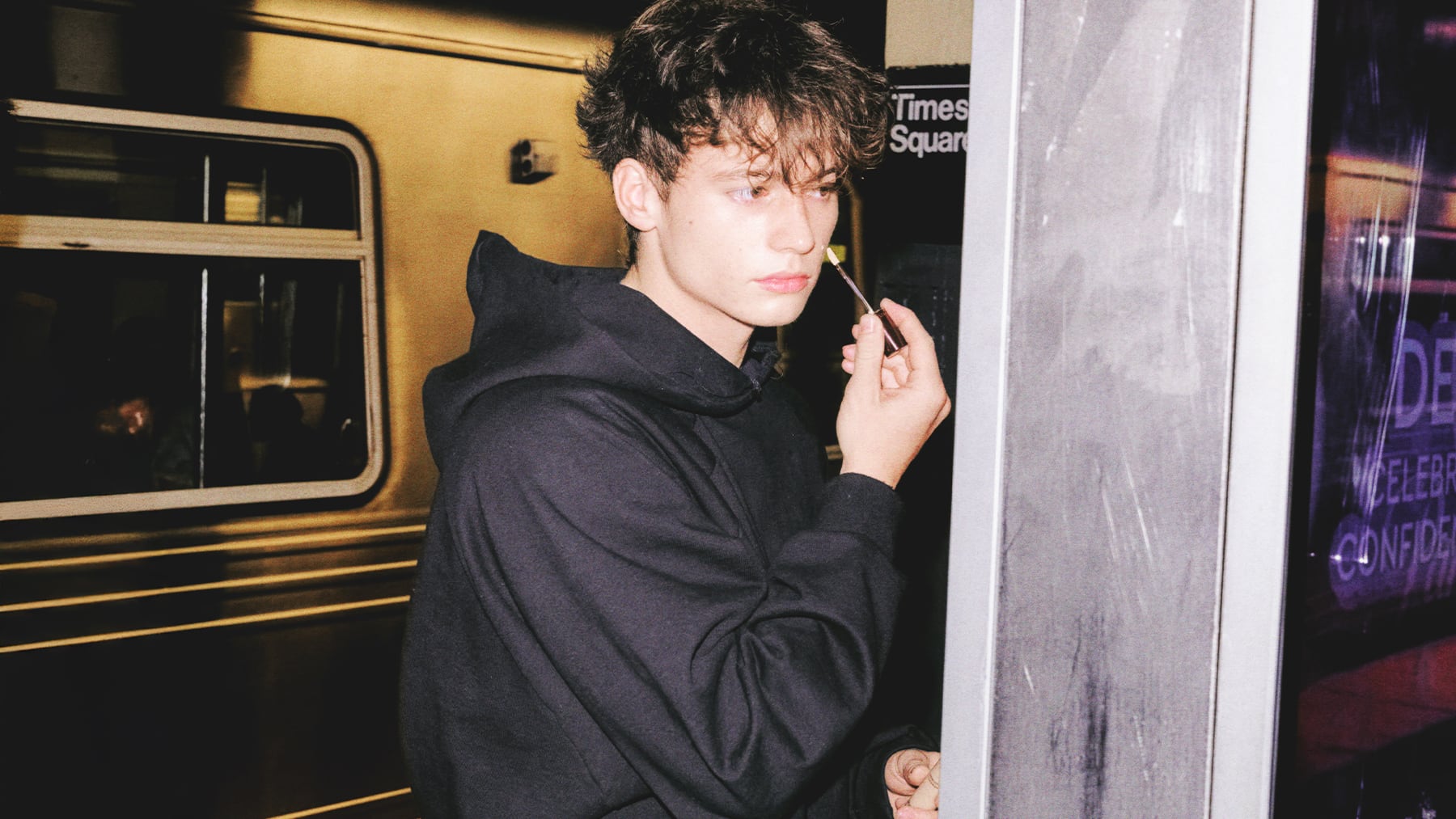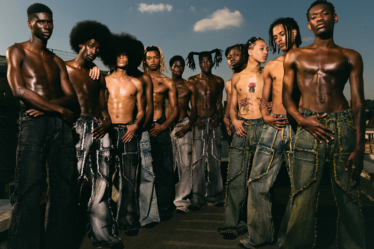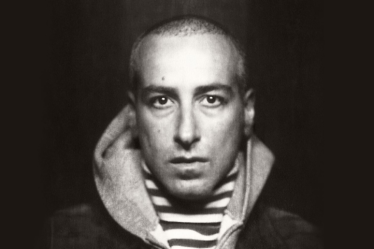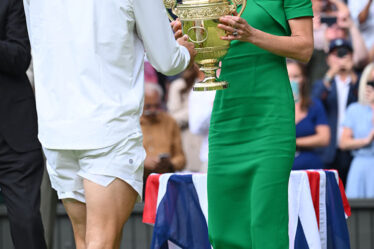
Just a few months ago, Bach Buquen was a mid-tier content creator from Paris. Today, he’s a bona fide TikTok teen idol with 6.1 million followers. But it wasn’t his shirtless, thirst trap workouts or his meme-worthy shoulder dance to Modern Talking’s “Brother Louie” that catapulted the 19-year-old to social media stardom. It was something he’d been doing since his early teens: wearing makeup.
In the late 2010s, queer beauty influencers like James Charles, Patrick Starrr, and Bretman Rock rose to internet fame by serving up sassy humour in full-glam faces. Buquen’s image couldn’t be more different: he’s traditionally masculine and straight. But that may be precisely why Buquen has not just attracted a sizable following but shifted social norms, making it less taboo for men to wear makeup.
Buquen is certainly having a moment. In the last six months, he’s inked partnerships with everyone from Armani Beauty and Anastasia Beverly Hills to Charlotte Tilbury and Hugo Boss. Gucci and Balenciaga have dressed him to attend their fashion shows. During a recent trip to New York (his first), teen girls stopped him on the street for selfies and Interview magazine dubbed him “TikTok’s favourite French heartthrob.” Last week, Kate Moss appeared on his TikTok (alongside Tilbury). Last week, he’s working with Jacquemus to promote the brand’s New York store opening.
“I think he’s one of a few boys who are very influential right now,” said Claudia Soare, president of Anastasia Beverly Hills. “They can help break that barrier [around men wearing makeup].”
Boys of Beauty
At 14, Buquen, who is half Vietnamese and half French-Italian, began stealing his mother’s foundation to cover his pimples, hiding behind his school bag while applying it on the Paris metro. “I was scared,” he recalled. “A lot of people are close-minded and think it’s just for women.”
Three years later, he had attracted 200,000 followers on TikTok with a mix of selfies and lipsyncing videos. But he soon grew weary of the haters and quit the platform. Last September, with encouragement from By Imhotep, a Paris-based Gen Z-led talent agency, he started posting again.
He wanted to combat the sense of shame associated with men wearing makeup. So, this August, during rush hour at the St. Lazare metro station, he set up two iPhones — one for lighting, the other for recording — and filmed himself applying his makeup. He posted it on TikTok with the call to action “Normalise makeup for men” and the hashtag #makeupformen.
He posted a few more versions of the video, and what followed was a viral success, fueled by both love and hate, that pushed #makeupformen to prominence and grew his TikTok following to over 4 million.
But Buquen isn’t the only teen TikToker making waves in men’s beauty.
In January, 22-year-old Matteo Sinet, known for his colourful, ever-changing hair, saw a similar rise. A TikTok showcasing his extensive skincare routine, featuring The Ordinary’s pink-coloured serum, went viral, amassing nearly 3 million likes and 40 million views in one month. His followers topped 4.2 million. North West — daughter of Kim Kardashian and Kanye West — engaged him in a playful makeup battle on TikTok. Recently, Sinet starred in Armani Beauty’s back-to-school makeup campaign.
Everyday Masc Appeal
Buquen and Sinet have a few things in common. They’re both straight and in many ways traditionally masculine, and that’s a big part of their appeal.
Buquen is a former rugby player who fits the “hyper-masculine hetero dude” image, said UTA marketing executive Nate Jones. Meanwhile, Sinet is an avid boxer who played basketball in the OTE (Overtime Elite) league, a French pathway to the NBA.
For Buquen, putting on concealer or dabbing liquid blush on his face makes him “feel more confident.” Sinet says he wears light makeup, lipstick and lipgloss for the same reason, insisting that wearing cosmetics isn’t just a TikTok stunt. “This is my routine in real life,” he said.
“You can’t call them beauty influencers — they’re not,” said Anastasia Beverly Hills’ Soare. “They’re guys with a following who do a lot of things — one of the things that they happen to do is beauty.”
Be Like Bach
While Buquen and Sinet have attracted the most attention, a growing number of TikTok creators focused on men’s makeup are gaining traction, such as @hwaniieww (1.6 million followers), @lucamornet (415,000 followers), and @joelerdmann_(262,000 followers).
“Men’s makeup is shifting from niche curiosity to a rising trend,” according to Quilt.AI. Internet searches for men’s makeup rose 120 percent in the past two years, the company said. And the category is expected to continue to grow. Future Market Insights estimates the global market for male colour cosmetics will more than double over the next 10 years, from $17.57 billion in 2023 to $43 billion by 2033: a small fraction of the overall beauty market, to be sure, but more than pocket change.
“There is a cultural shift towards men incorporating makeup into their daily routines,” said Armani Beauty president Richard Pinabel, noting “a strong reception to our brand among male consumers” and that “face and lip are the biggest opportunities with concealer, gloss, and [products for] brows.”
Tom Ford and Chanel have long offered beauty products for men. But launching men’s-specific makeup lines may not be the best strategy for brands targeting the opportunity and Armani Beauty has avoided launching a cosmetics offering that’s overtly for men.
In March, Anastasia Beverly Hills launched Beauty Balm, a genderless skin tint serum that quickly resonated with men because “it doesn’t look like makeup,” said Soare. “It’s very Gen Z, very fluid.”
“I think the nonchalance [Buquen] brings to the conversation is the same nonchalance a brand should bring,” said Jones. “It’s a product for everyone. Don’t make a big stink about it.”
Sign up to The Business of Beauty newsletter, your complimentary, must-read source for the day’s most important beauty and wellness news and analysis.



